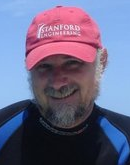

My Profile
About
Career Type:
Scientist/Researcher/Academic
Organization Type:
Universities and Academia
Expertise Fields/Interests:
Major Achievements:
Technical Committees
| Committee Name |
My Papers and Presentations
My Videos
IAHR Awards
| IAHR Awards | Date |